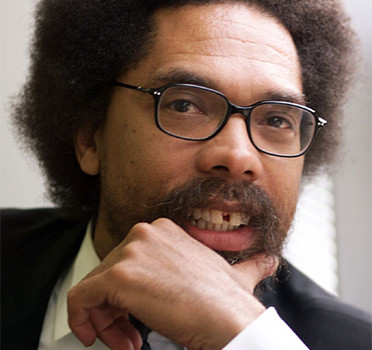Prophetic Fire, Rock and Roll, Poetic Trespass, Featured Subjects of Labyrinth Conversations

 Labyrinth Books will be hosting a varied series of conversations over the coming week, beginning with Cornel West and James H. Cone discussing Mr. West’s new book, Black Prophetic Fire (Beacon $25.95) on Thursday, November 13, at 6 p.m.
Labyrinth Books will be hosting a varied series of conversations over the coming week, beginning with Cornel West and James H. Cone discussing Mr. West’s new book, Black Prophetic Fire (Beacon $25.95) on Thursday, November 13, at 6 p.m.
The following Tuesday, November 18, at 6 p.m., Greil Marcus and Sean Wilentz will be talking about Mr. Marcus’s The History of Rock ‘n’ Roll in Ten Songs (Yale $28).
The current series of Labyrinth cycle of conversations will close at 6 p.m. on Wednesday, November 19 with Lital Levy and Benjamin Conisbee Baer in Conversation on Mr. Levy’s Poetic Trespass: Writing Between Hebrew and Arabic in Israel/Palestine (Princeton Univ. Press $39.95).
West and Cone
Cornel West, whose books include Race Matters and Democracy Matters, examines 19th- and 20th-century African American leaders in Black Prophetic Fire. Joining him will be James H. Cone, best known for Black Theology & Black Power and A Black Theology of Liberation.
In his new book, Mr. West, together with scholar Christa Buschendorf, discusses the impact on their own eras and across the decades of Frederick Douglass, W. E. B. Du Bois, Martin Luther King Jr., Ella Baker, Malcolm X, and Ida B. Wells.
Kirkus Reviews cites
“Lively, heated, fighting words” while Publishers Weekly observes that West’s “mini-lectures, which frequently run uninterrupted for pages at a time, and Buschendorf’s instructive set-ups for them … convey a wealth of information.”
Marcus and Wilentz
Unlike all previous versions of rock ’n’ roll history, Greil Marcus’s The History of Rock ‘n’ Roll in Ten Songs omits almost every iconic performer and ignores the storied events and turning points that everyone knows. Mr. Marcus, whose books include Mystery Train: Images of America in Rock ’n’ Roll Music and Lipstick Traces: A Secret History of the Twentieth Century, will be talking about the story each song tells with Princeton Professor of History Sean Wilentz, the author of, most recently, The Rise of American Democracy: Jefferson to Lincoln; The Age of Reagan: A History, 1974-2008; and Bob Dylan in America. Mr. Wilentz’s writings on music have earned him a Grammy nomination.
Among the songs discussed are “Transmission” by Joy Division; “All I Could Do Was Cry” by Etta James and then Beyoncé; and “To Know Him Is to Love Him,” first by the Teddy Bears and almost half a century later by Amy Winehouse.
According to Mikal Gilmore, “Greil Marcus is a critic for the ages. There aren’t many writers I’ve learned more from, nor many whose word for word and sentence for sentence writing I enjoy more.”
Novelist Walter Mosley says, “You could go to the Rock and Roll Hall of Fame and take in the artifacts and roll call or you can read Greil Marcus’ kinetic, pulsing, brilliant history of this deeply American art form … Marcus captures why Rock and Roll resonates down to our bones.
Levy and Conisbee Baer
In Poetic Trespass Lital Levy, an assistant professor of Comparative Literature at Princeton, where she teaches Modern Hebrew and Arabic literatures and literary theory, presents a portrait of the literary imagination’s power to transgress political boundaries and transform ideas about language and belonging. Joining her in conversation about these urgent topics is her colleague at Princeton, Benjamin Conisbee Baer, the translator of The Tale of Hansuli Turn. His book, Modernity’s Mouths: Indigenous Vanguards and Transnational Modernism in the Interwar World, is forthcoming from Columbia University Press.
According to David Damrosch, Harvard University, “Poetic Trespass opens new vistas on the ‘no-man’s land’ between Hebrew and Arabic. Through deeply thoughtful readings of works in Hebrew, Arabic, and uncanny palimpsests of both languages, Lital Levy probes the ways in which literature can reimagine the world beyond the ordinary boundaries of political discourse. With its nuanced attention to questions of translation and mistranslation, of
cultural memory and oblivion, Poetic Trespass should be read by anyone interested in pathbreaking work in comparative literary and cultural studies today.”

